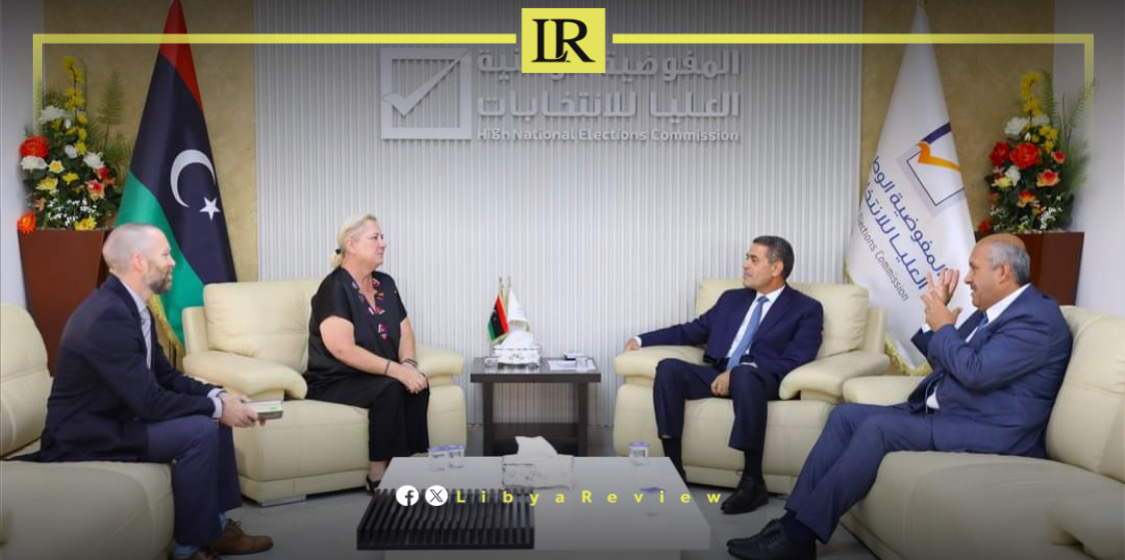On Tuesday, the UN Under-Secretary-General for Political and Peacebuilding Affairs, Rosemary DiCarlo, reaffirmed the international community’s dedication to helping Libya complete its electoral roadmap and establish stronger democratic institutions.
This came during her meeting with Emad Al-Sayeh, the Chairman of Libya’s High National Elections Commission (HNEC) in Tripoli.
DiCarlo also expressed appreciation for the progress made by the commission, particularly in managing the recent municipal council elections. The discussions, which also included Stephanie Khoury, Acting Head of the UN Support Mission in Libya (UNSMIL), focused on the ongoing electoral process and the international support required to ensure free, fair, and credible elections.
DiCarlo underscored the importance of continued technical assistance from donor nations to strengthen Libya’s electoral framework. International support remains essential to helping Libya prepare for the national elections, with efforts focused on everything from voter registration and election security to logistical planning.
The commitment from global partners is seen as a crucial pillar in Libya’s efforts to achieve a stable, democratic government.
This meeting is part of a broader effort by the UN and its partners to guide Libya through its difficult political transition. The country has struggled with instability and division since the fall of Muammar Gaddafi in 2011, and while there have been numerous ceasefire agreements and peace efforts, the road to lasting peace and governance has been fraught with challenges.
Libya’s recent success in conducting municipal elections is viewed as an important step toward decentralizing power and restoring local governance. These local elections have helped rebuild trust in public institutions, a critical element in a country that has faced years of centralized authoritarian rule.
Beyond electoral preparations, DiCarlo’s visit to Libya also highlighted ongoing security concerns. On Monday, she attended a key meeting of the 5+5 Joint Military Committee in Benghazi. This committee, which includes representatives from both the eastern and western factions in Libya, is tasked with maintaining the ceasefire that was agreed upon in 2020.


